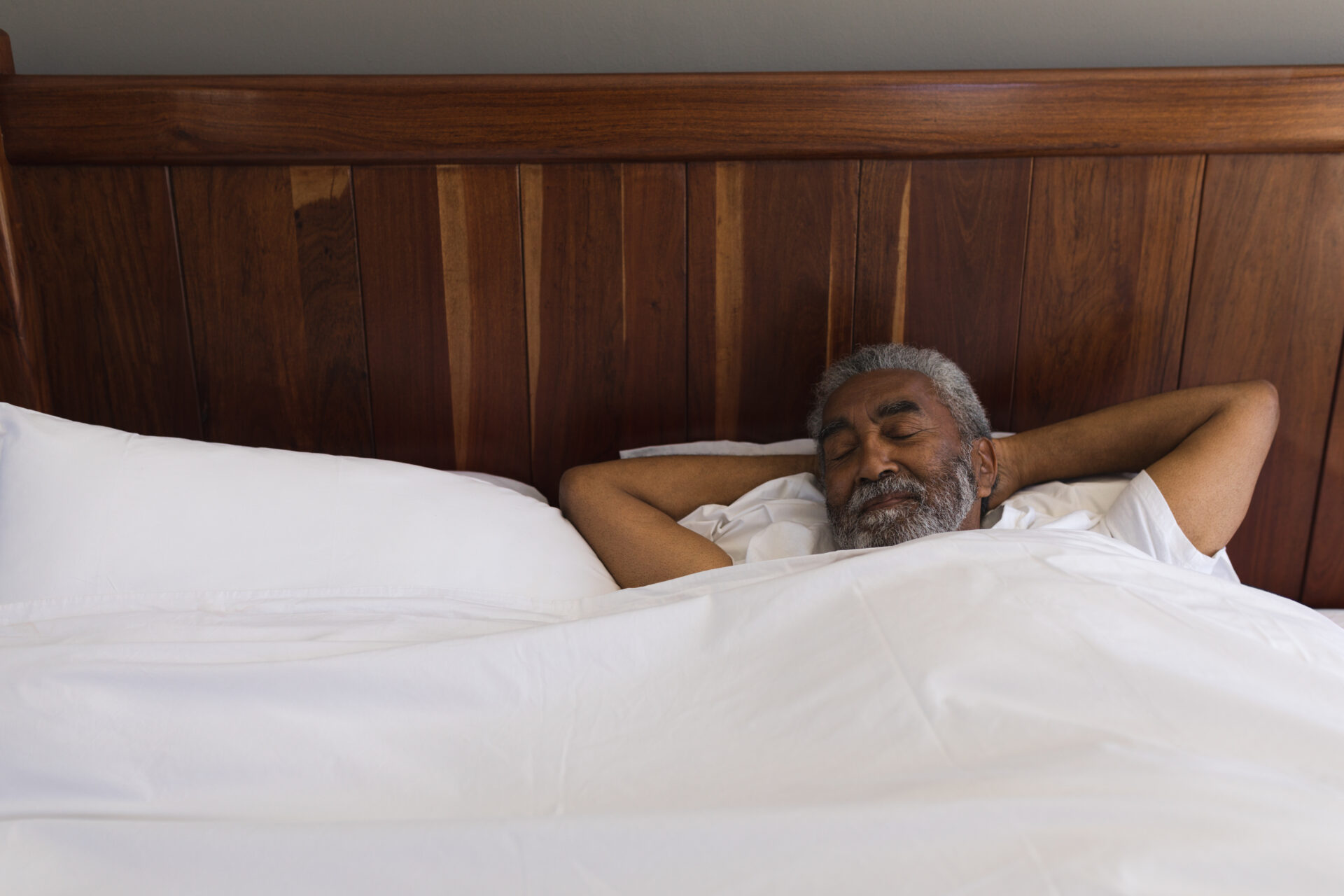We want our older loved ones to enjoy life to the fullest. However, poor sleep can severely impact their ability to participate in the activities they love the most.
Many older adults have unique needs for getting a good night’s rest due to the effects of aging and overall health. In this month’s blog, we look at the factors that can hamper sleep and provide tips on overcoming them so your loved one can enjoy an optimal quality of life.
Why Do Some Older Adults Have Trouble Sleeping?
Older people are often affected by poor sleep because many have been diagnosed with more than one health condition that can cause pain and discomfort. They may also have poor daytime sleep habits or suffer from stress or depression.
Here are some of the factors that can directly impact an older person’s ability to get a proper amount of sleep:
Chronic pain
Many older adults have trouble sleeping due to chronic pain. In some cases, getting less sleep can actually increase pain, compounding both problems.
Insomnia
Persistent difficulties falling or staying asleep can be caused by several simultaneous factors, including daytime napping, a lack of physical activity, stress, and more.
Frequent nighttime urination
Health conditions attributed to aging or physical changes in the urinary system can lead to waking up several times during the night to urinate, hampering the ability to get adequate rest.
Sleep apnea
Obstructive sleep apnea is usually caused by the upper airway collapsing or narrowing, leading to pauses in breathing that fragment sleep. It is a dangerous condition that can cause daytime sleepiness and increase your risk of heart conditions, stroke, and diabetes.
Daytime napping
Taking a quick afternoon nap when feeling sleepy is usually harmless. However, excessive afternoon napping or napping in the evening may affect one’s ability to fall asleep at night.
Get Better Rest at Night With These Sleep Tips for Older People
If you or an older loved one is having trouble falling or staying asleep, following these tips should help improve sleep hygiene, resulting in restful nights and more energetic days.
Get regular exercise
People who exercise regularly tend to fall asleep faster and enjoy better-quality sleep. Walking, swimming, or weight training, and other forms of exercise are excellent ways to improve overall well-being. Be sure to consult with your doctor before starting any new workout program.
Keep electronics out of the bedroom
Televisions, smartphones, and other devices with bright screens emit blue light, which reduces or delays the natural production of melatonin, the hormone that produces feelings of sleepiness in the evening. Resist the urge to fall asleep watching television, playing games on your phone, or surfing the web in bed before sleep.
Avoid substances that can impair sleep
Consuming alcohol, caffeine, and even large meals in the hours before sleep can make getting a restful sleep more challenging. Smoking before bed can also hamper your ability to fall asleep. Avoid all these substances in the evening and consider quitting smoking altogether.
Keep a consistent sleep schedule
You can help optimize sleep by going to bed and waking up at the same time every day. This technique helps “train” your body to sleep on a consistent basis. However, be careful not to nap for too long or too close to bedtime to prevent interfering with your routine.
Practice relaxation routines before bed
Find activities that help you relax, which will support a good night’s sleep. Try taking a warm bath or shower, reading a book, meditating, stretching, or just enjoying some mindful quiet time.
Use a CPAP machine for sleep apnea
If you snore or show other signs of sleep apnea, consider participating in a sleep study. Depending on the results, you might need to use a CPAP machine to minimize sleep apnea’s effect on your sleep and reduce the risk of other health conditions.
Visit your primary healthcare provider
If chronic pain, frequent nighttime urination, depression, or other health factors are interfering with sleep, consider visiting the doctor for treatment recommendations. Medications are available to ease the symptoms, promoting a restful night.
Sleep Deeply – and Safely
Older people not only need to be mindful of their quality of sleep but also have to ensure that the bedroom is as safe as possible. Here are some steps your older loved one can take for the safest sleep possible.
Keep a phone on the nightstand
Your loved one might need to call for help while in bed. Keep a phone within easy reach with a list of important phone numbers nearby. Landline phones are usually best, as smartphone screens will switch on or make a sound if they receive notifications at night, disturbing sleep.
Make sure a light is within easy reach
If your loved one needs to get up during the night, have a light nearby so they can easily navigate the room without becoming disoriented. You can also install lights with motion sensors in hallways or the bathroom for added safety.
Keep the floor free of clutter
Accidental falls can be extremely dangerous for older people, so be sure to keep the floor clear of tripping hazards, such as rugs, electrical cords, stools, and furniture. The path from the bed to the door should always be free from clutter to help prevent injuries.
If you need more information or would like support with caring for a beloved family member, the CareHop team is always just a phone call away.
Quality In-Home Elder Care Services in Toronto, Etobicoke, Mississauga, and Brampton
CareHop specializes in providing safe, professional eldercare services, including on-demand Alzheimer’s disease and dementia care, personal care, and assistance with physical activities whenever you need it.
Contact us today for a free, no-obligation discussion to discover how we can help you with safe, cost-effective eldercare solutions.




